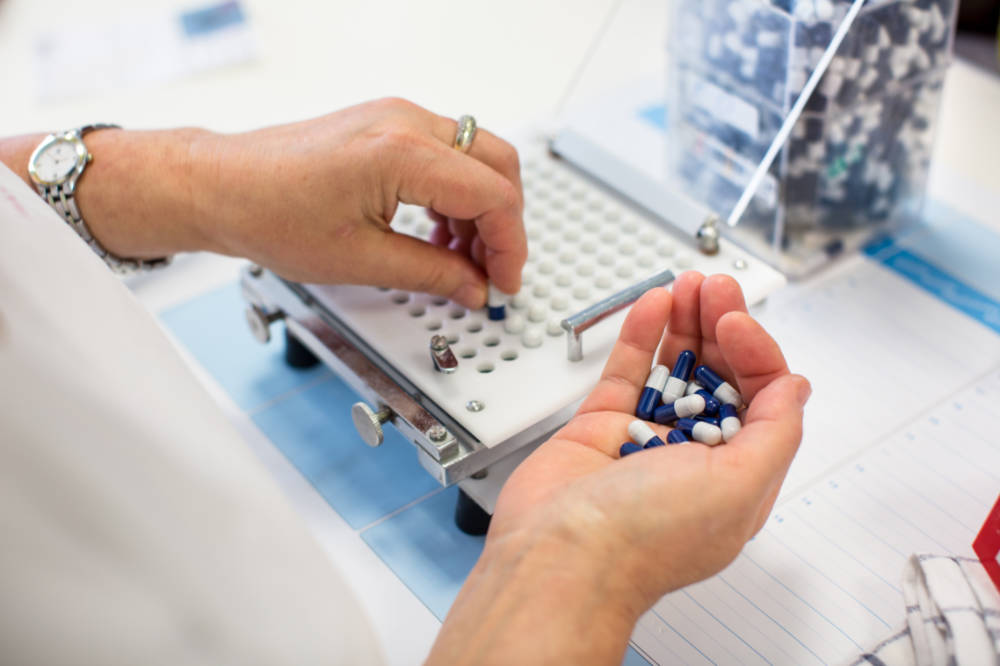Sosei Group Corporation, a leader in GPCR-focused structure-based drug design (SBDD) and development, and Cancer Research UK, the independent funder of cancer research, have dosed the first patient in a Phase I/IIa clinical trial evaluating Sosei Heptares’ orally available small molecule cancer immunotherapy drug HTL0039732 for advanced solid tumors.
HTL0039732 works by blocking signalling through a specific type of prostaglandin receptor, the prostaglandin E2 (PGE2)-type prostanoid receptor 4 (EP4). In cancer, PGE2 acts in the tumor microenvironment to trigger cancer cells to evade the immune system.
Targeting EP4 to block the effects of PGE2 increases the ability of the immune system to detect and control cancer cells and makes HTL0039732 a potential candidate to treat patients with cancers that generally do not respond well to current immunotherapies, such as microsatellite stable colorectal, gastroesophageal, head and neck, and castrate-resistant prostate cancer. Positive results from the trial will bring effective treatment closer to these underserved patient populations.
Cancer Research UK’s Centre for Drug Development (CDD) is sponsoring, designing and conducting the Phase I/IIa trial with three main objectives: to define the toxicity, tolerability and pharmacokinetics of HTL0039732, to identify the recommended dose for Phase II studies, and to assess its antitumor activity as a monotherapy and in combination with the PD-L1 inhibitor atezolizumab. Phase IIa of the trial will expand the optimal combination dose in up to four cohorts in specified cancer indications.
Sosei Heptares holds a license to the results generated under the trial to continue the clinical development and commercialization of HTL0039732.
Chief Investigator Dr. Bristi Basu, University of Cambridge, and Co-Chief Investigator Dr. Debashis Sarker, King’s College London, are leading the trial. Patient recruitment has been initiated in the UK at Cambridge University Hospitals and Guy’s and St Thomas’ NHS Foundation Trusts, with additional sites across the Experimental Cancer Medicine Centre (ECMC) network to open soon.
Matt Barnes, President of Heptares Therapeutics and Head of UK R&D, said: “We are very pleased to be collaborating with Cancer Research UK to advance HTL0039732 into clinical development.
“This novel oral small molecule drug candidate was rationally designed using our SBDD platform and has the potential to become a best-in-class approach to enhance the efficacy of immunotherapies used to treat many cancer patients.”
Dr. Bristi Basu, University of Cambridge, said: “We are excited to be opening a new UK clinical trial using HTL0039732 to target a protein called EP4, a member of the prostaglandin receptor family that has been implicated in creating the immunosuppressive environment which promotes tumor growth in multiple cancer types.
“By studying HTL0039732 alone and in combination with immunotherapy, we aim to understand more about how to optimize modulation of the immune system to fight cancers. We hope that this EP4-targeting approach will deliver a promising route to improving treatment options for patients with a broad range of cancers.”
Dr. Nigel Blackburn, Director of Cancer Research UK’s CDD, said: “We are delighted to have reached this next significant milestone in our partnership with Sosei Heptares. The fact that immunotherapy works for some patients but not others means we desperately need more trials like this to open up potentially life-saving treatment options to more people.”
The UK Medicines and Healthcare products Regulatory Agency (MHRA) has granted HTL0039732 an Innovation Passport, the first step in its Innovative and Licensing Access Pathway (ILAP), which aims to improve patient access to new medicines by reducing the time to market. The MHRA grants Innovation Passports to medicines that treat life-threatening or seriously debilitating conditions, and where there is a significant patient or public health need.


